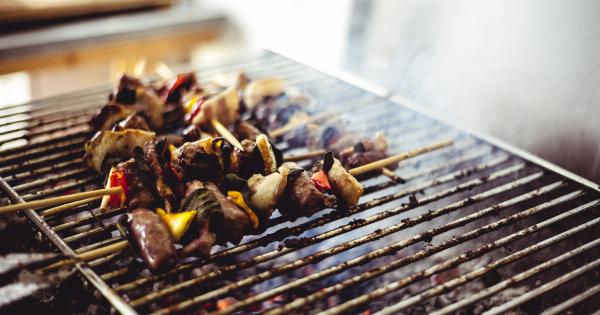Breastfeeding is a natural and beneficial way to nourish your baby. However, what you eat can affect the quality of your breast milk and can sometimes cause sensitivities or reactions in your baby.
Some foods can also decrease your milk supply or cause digestive problems in both you and your baby. Understanding the foods to avoid while breastfeeding can help you ensure that you and your baby stay healthy and happy.
1. Alcohol
Consuming alcohol while breastfeeding can lead to decreased milk production and affect the baby’s immune system and growth.
It is recommended that breastfeeding mothers avoid alcohol altogether, but if you choose to consume it, limit your intake and avoid breastfeeding for at least two hours after drinking.
2. Caffeine
While caffeine is safe in moderate amounts, excessive intake can cause restlessness, irritability, and poor sleeping habits in your baby. It is recommended to limit caffeine intake to two to three cups of coffee per day or consume decaffeinated drinks.
3. Fish with High Levels of Mercury
Fish is an excellent source of protein and omega-3 fatty acids, but some types contain high levels of mercury that can cause developmental problems in your baby’s brain. It is advised to avoid swordfish, shark, king mackerel, and tilefish.
You can consume up to 12 ounces of low-mercury fish per week, such as salmon, shrimp, and canned light tuna.
4. Spicy Foods
Spicy foods can cause discomfort, gas, and diarrhea in both you and your baby. If you consume spicy food, watch for any adverse reactions in your baby and adjust accordingly.
5. Garlic and Onion
Garlic and onion are healthy foods that can be beneficial for your health and also enhance the flavor of meals. However, some babies can be allergic or sensitive to the compounds in garlic and onion.
If you notice any adverse reactions such as colic, fussiness, or reflux in your baby after consuming garlic or onion, consider limiting or avoiding it.
6. Dairy Products
Dairy foods can trigger colic, rashes, and digestive problems in some babies who are lactose intolerant or allergic to dairy. If you suspect that dairy is causing an issue, try avoiding it for a few weeks and see if there are any improvements.
If there are no improvements, contact your healthcare provider.
7. Citrus Fruits
Citrus fruits such as lemons, limes, grapefruit, and oranges can cause acid reflux, diaper rash, and irritability in some babies. If your baby develops diaper rash or is fussy after you consume citrus fruits, consider limiting or avoiding them.
8. Peanuts and Tree Nuts
If you have a family history of allergies or suspect that your baby may be allergic, avoid consuming peanuts and tree nuts. These foods can cause allergic reactions in some babies, causing rashes, swelling, and difficulty breathing.
9. Chocolate
Chocolate contains caffeine, and some babies can be sensitive to its compounds, causing restlessness, colic, or sleeping problems. If you notice any adverse reactions in your baby after consuming chocolate, consider avoiding it or limiting your intake.
10. Wheat and Soy Products
If your baby has shown signs of colic, fussiness, and digestive problems, avoiding wheat and soy products may help. These foods are common allergens that can cause intolerances in some babies.
Conclusion
While breastfeeding, it is essential to eat a well-balanced and varied diet that will provide you and your baby with the essential nutrients needed for growth and development.
However, certain foods can cause digestive problems, allergic reactions, or decrease the quality and production of your breast milk. It is recommended to avoid or limit the consumption of alcohol, caffeine, fish with high levels of mercury, spicy foods, garlic and onion, dairy products, citrus fruits, peanuts, tree nuts, chocolate, wheat, and soy products while breastfeeding.
If you notice any adverse reactions in your baby after consuming foods, consider eliminating or limiting them and talk to your healthcare provider about other options.






























